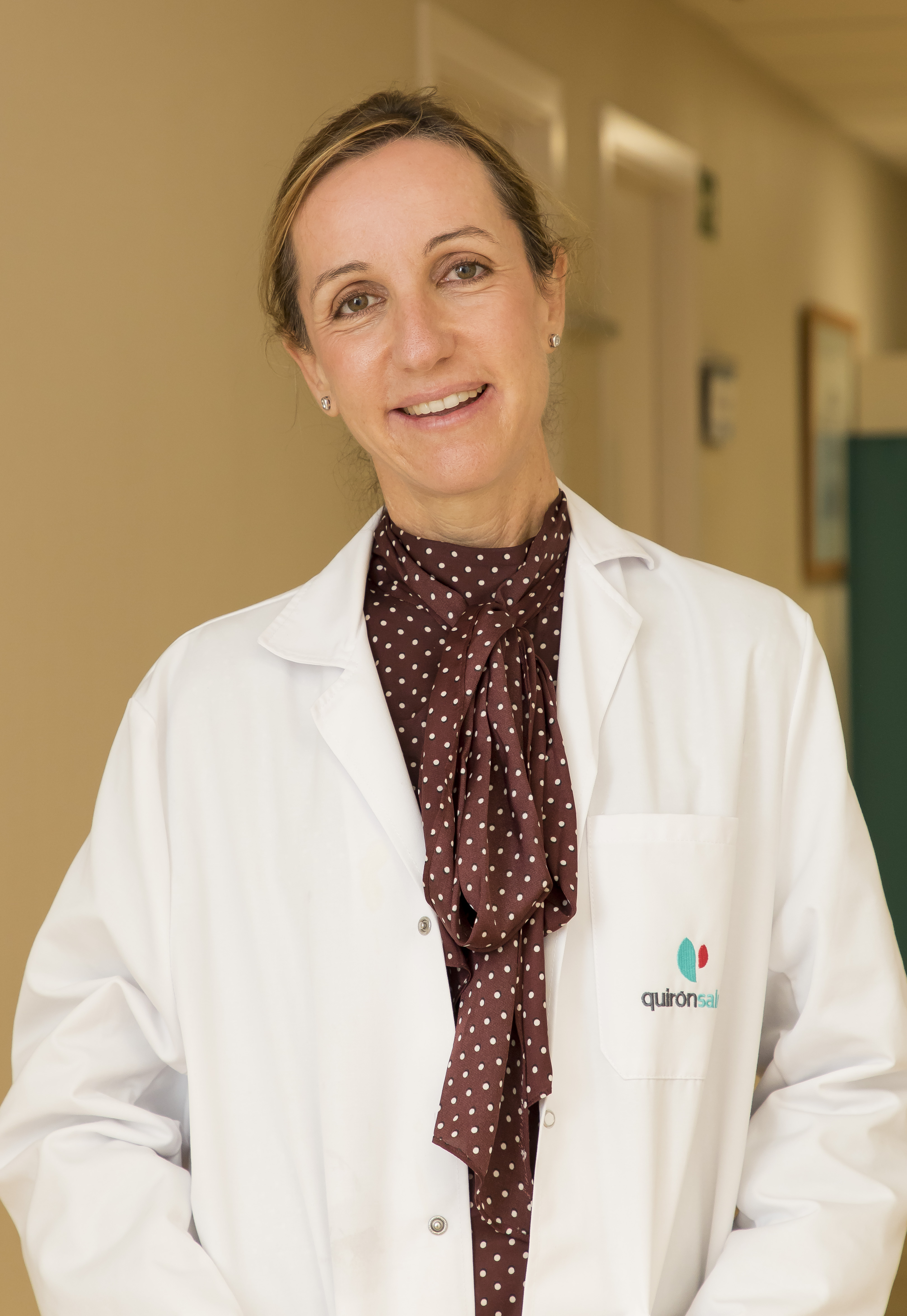Medical Center
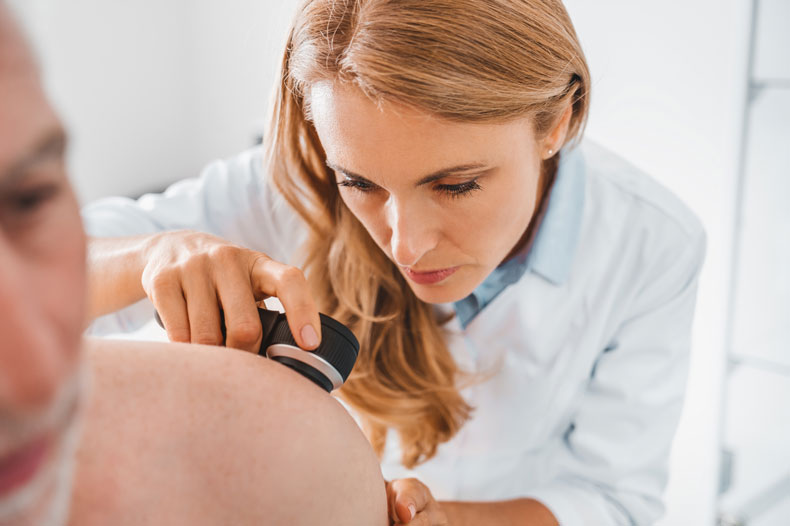
Dermatology
The Olympia Dermatology Service is the medical-surgical area that manages the skin and skin-related diseases, as well as the methods for the prevention, preservation or recovery of skin normality.
Our specialists also have expertise in surgery, rheumatology (as many rheumatological diseases present skin symptoms), immunology, neurology (especially neurocutaneous syndromes such as neurofibromatosis or tuberous sclerosis), infectious diseases and endocrinology, etc.
In addition, they regularly participate in training activities and research projects, always with the ultimate aim of improving the quality of care of our patients.
Featured treatments
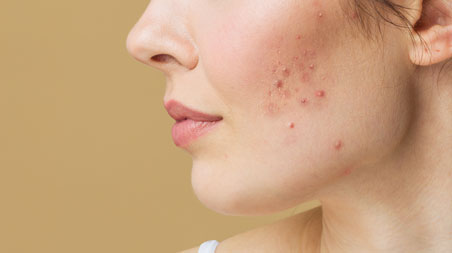
Dermatology for patients with acne
Focuses on the diagnosis and treatment of this skin disease. Acne is a pathology that affects the skin’s sebaceous glands and can manifest itself in various forms, from comedones to inflammatory lesions. Our dermatologists assess the severity of acne, identify its underlying causes and prescribe treatments that may include topical skin care products, oral antibiotics or procedures such as laser therapy.
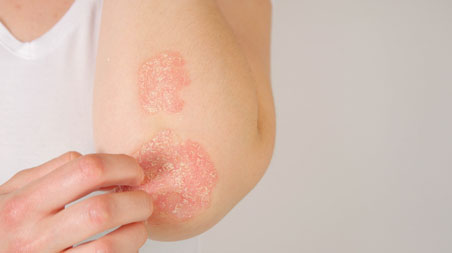
Treatment of psoriasis
Psoriasis is an autoimmune disease that affects the skin and sometimes the joints. Our dermatologists provide care and assistance to patients with psoriasis. This involves accurate diagnosis, the choice of suitable treatments such as topical creams, phototherapy or systemic medications, and management of the emotional and social aspects of the disease.
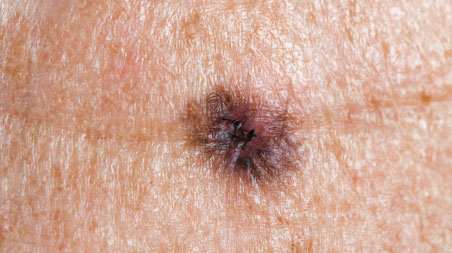
Prevention and treatment of skin cancer
Our dermatologists promote prevention through sun protection education, early detection of suspicious lesions and digital mole mapping. The treatment of this disease may include the surgical removal of skin tumours, cryotherapy and, in the case of non-melanoma skin cancer, photodynamic therapy.
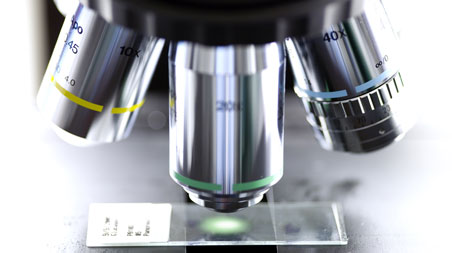
Dermatologic surgery
This covers a wide range of procedures, from skin biopsies to diagnose suspicious lesions to major surgery to remove tumours. We specialise in the use of Mohs surgery for non-melanoma skin cancer.

Basic skin therapy
Includes topical treatments for a variety of dermatological conditions. From moisturisers and corticosteroids to retinoids and skin care products. Our dermatologists tailor these treatments to the specific needs of their patients, taking into account factors such as skin type and the condition being treated.
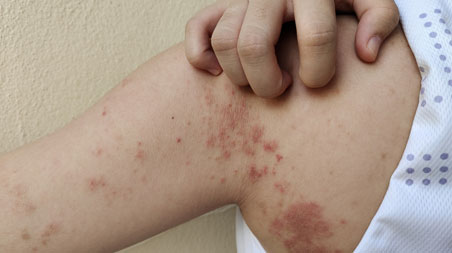
Infectious skin diseases
(warts, molluscum or impetigo)
Infectious skin diseases are skin conditions caused by microorganisms that can be treated with topical medications, as in the case of warts and molluscum, or oral or topical antibiotics in the case of impetigo. The most prominent are:
- Warts: small rough lesions that are usually due to human papillomavirus (HPV) infections.
- Molluscum contagiosum: small-sized bumps that occur due to poxvirus infection.
- Impetigo: common bacterial infection that causes crusting and blistering of the skin.
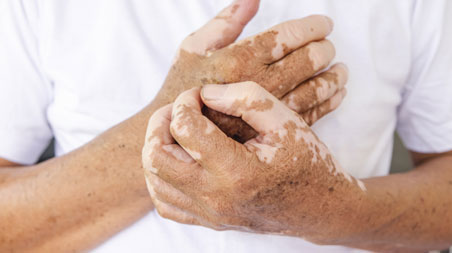
Cutaneous autoimmune diseases
(vitiligo or blistering diseases)
These pathologies are characterised by an abnormal immune response that attacks the skin and its structures. The most common include:
- Vitiligo: a disease in which the immune system destroys the skin’s pigment cells, resulting in loss of pigmentation and the formation of white patches.
- Blistering diseases, such as pemphigus and pemphigoid: these are autoimmune conditions that cause blistering of the skin and mucous membranes due to the destruction of epidermal cell junctions. Treatment usually involves immunosuppressive medication to inhibit the intensity of the immune response.
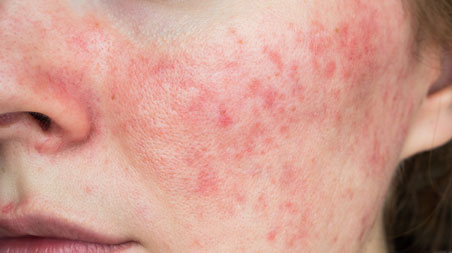
Inflammatory skin diseases
(atopic dermatitis or rosacea)
These are chronic conditions that affect the skin and often manifest with redness, itching and other symptoms. Treatment varies depending on the condition and includes topical creams, phototherapy, oral antibiotics and other specific medications. Some of the most common include:
- Atopic dermatitis, also known as eczema: which is characterised by dry, irritated, itchy skin.
- Rosacea: mainly affects facial skin and presents with facial redness, dilated blood vessels and, in advanced cases, papules and pustules.
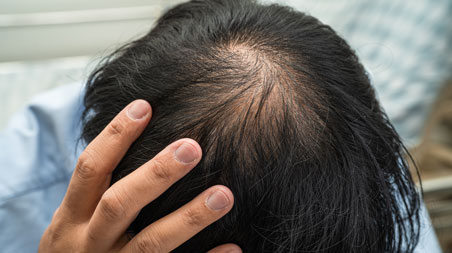
Hair pathology
(alopecia)
Focuses on hair loss disorders. Alopecias encompass a variety of conditions that can lead to hair loss. This may be due to genetic factors, autoimmune disorders such as alopecia areata, stress, poor eating habits or underlying medical conditions. Treatments include topical and oral medications, laser therapy and, in advanced or scarring cases, hair transplantation. Treatment is tailored to the underlying cause of the alopecia.


